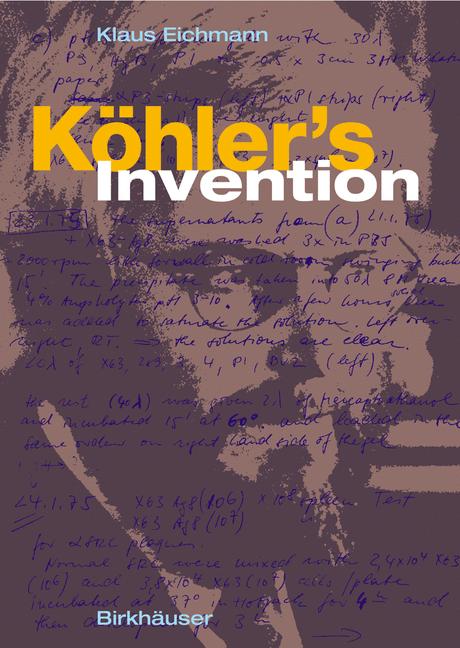
Zustellung: Fr, 11.07. - Di, 15.07.
Versand in 7 Tagen
VersandkostenfreiBestellen & in Filiale abholen:
Georges Köhler was one of the most prominent German scientists of recent history. In 1984, at an age of 38, he received the Nobel Prize in Physiology or Medicine, together with N. K. Jerne and C. Milstein, for inventing the technique for generating monoclonal antibodies. This method and its subsequent applications had an enormous impact on basic research, medicine and the biotech industry. In the same year, Köhler became one of the directors of the Max-Planck-Institute of Immunobiology in Freiburg; his unfortunate premature death in 1995 set an end to his extraordinary career. Prof. Klaus Eichmann, who had invited Köhler to become his codirector, is one of the people who were closest to him.
This scientific biography commemorates the 10th anniversary of Köhler's untimely death. Köhler's scientific achievements are explained in a way to make them understandable for the general public and discussed in the historical context of immunological research.
Inhaltsverzeichnis
The time before. - A short history of the antibody problem. - The immunological scene around Köhler. - Köhler s entry into science. - The quest for monoclonal antibodies. - Cell fusion. - Köhler in Cambridge. - Back in Basel. - The patent disaster. - The time after. - The Max-Planck-Institute of Immunobiology. - Getting Köhler to Freiburg. - Köhler s Max-Planck-Institute . - Human relations. - Post-Nobel science I. - Post-Nobel science II. - Köhler s death. - Magic bullet. - The antibody problem today not quite solved.
Produktdetails
Erscheinungsdatum
19. Juli 2005
Sprache
englisch
Auflage
2005
Seitenanzahl
232
Autor/Autorin
Klaus Eichmann
Verlag/Hersteller
Produktart
gebunden
Abbildungen
VI, 223 p.
Gewicht
518 g
Größe (L/B/H)
241/160/19 mm
ISBN
9783764371739
Entdecken Sie mehr
Pressestimmen
Die Biographie wirkt ehrlich. ( ) Kein Genie erscheint da, sondern ein intelligenter, eigenwilliger und fauler Forscher, der zur rechten Zeit am rechten Ort in der rechten Gruppe war. ( ) Eichmanns Biographie ist eine der besten, die ich je gelesen habe. (Laborjournal)
Diese englischsprachige Biographie stellt seine wissenschaftlichen Leistungen für eine breite Öffentlichkeit verständlich dar und diskutiert sie im historischen Kontext der immunologischen Grundlagenforschung.
(Transkript)
Bewertungen
0 Bewertungen
Es wurden noch keine Bewertungen abgegeben. Schreiben Sie die erste Bewertung zu "Köhler's Invention" und helfen Sie damit anderen bei der Kaufentscheidung.










